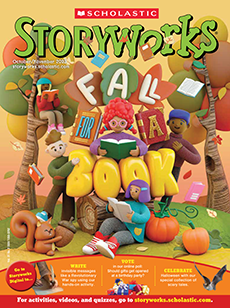Some people might think country living is boring, what with the wide-open spaces and the big piles of hay. But except for the roosters waking me at the first sign of the sun on the horizon, I love it here. In the fields with my telescope, I can see the craters on the moon and the rings of Saturn. The stars are so far away, it can take millions of years for their light to reach us. Whenever I look up, I’m looking into the past. I travel through time without leaving my backyard!
How cool is that?
The problem is, Dad just got some big job on a newspaper, and now we’re moving to New York City. Mom grew up in the city and is so excited about the move she’s practically glowing.
I am not glowing.
I’ve lived in this house every day of my life. I’ve gone to school with the same kids since kindergarten. The fact that I’ll still have the stars in New York is the only thing keeping me from freaking out. Dad promised that our apartment will have a balcony for my telescope. He also promised I wouldn’t have any trouble making friends.
I doubt that one. Kids in the city are cool. They grow up next to famous people, and they know what to wear for every occasion. I like looking at the stars and growing big pumpkins. I’m in the 4-H club. I even like math. I don’t think I’m going to be very popular.


